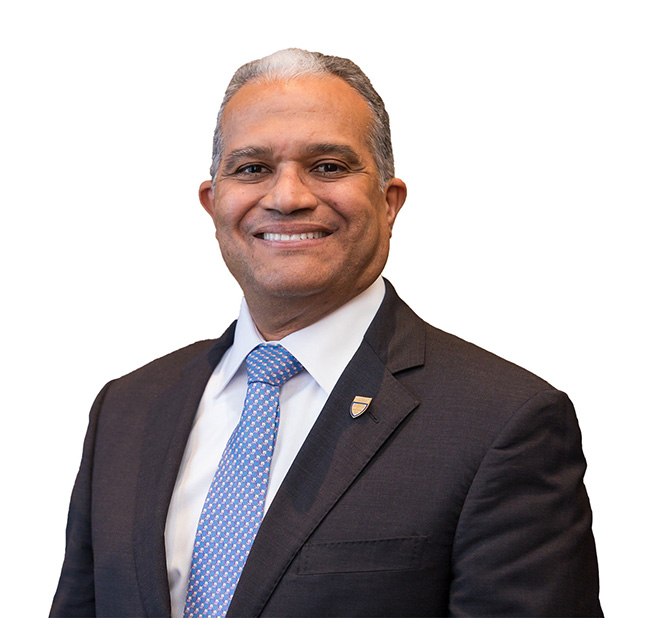
By Feniosky A. Peña-Mora, Sc.D., P.E., NAS, CCM, F.CIOB, NAC, Dist.M.ASCE
Civil engineers are charged with protecting the health, safety, and welfare of all people, including those within our industry. And with significant mental health challenges prevalent in the construction industry, good mental well-being should be prioritized when protecting our workforce.

Research shows that construction workers are among the highest risk for mental health issues, including depression, anxiety, and suicide. According to the U.S. Department of Labor’s Occupational Safety and Health Administration, the construction industry has one of the highest suicide rates of any sector — four times higher than the general population.
The pressures of working on complex projects with tight deadlines and long hours further contribute to stress and burnout.
Suicide and mental health concerns affect not only individuals but also their families and colleagues. These issues are a significant factor in the workforce shortage in our industry. As some of our colleagues leave the industry, construction struggles to meet growing infrastructure demands, increasing the burden on those who remain, creating a cycle. Addressing this issue is not just a personal concern; it’s essential for the industry.
ASCE plays a critical role in supporting civil engineers’ mental well-being. Through our various programs, we raise awareness about mental health challenges, provide relevant resources, and advocate for better workplace practices.
The ASCE Library’s Mental Health in Construction Collection offers helpful research articles and papers on mental health. Additionally, several technical notes and podcasts on mental health are available on the Civil Engineering Source. ASCE also hosts Thursdays @ 3, a virtual roundtable series with episodes focused on mental health topics such as stress management and maintaining a healthy work-life balance. Through ASCE Collaborate, members can access forums to discuss challenges and openly share coping strategies.
ASCE also partners with other organizations to promote industry-wide initiatives focused on mental well-being, including advocating for policies that address mental health in the workplace. The Construction Institute and Construction Research Congress 2024 Joint Conference recently featured the insightful plenary session, “Prioritizing Mental Health in Engineering and Construction.”
Several other organizations are also effectively addressing mental health concerns across the profession. The Construction Industry Alliance for Suicide Prevention initiative provides resources and tools designed to address mental health and suicide prevention in the construction industry. It also offers training and educational materials. The National Institute for Occupational Safety and Health supplies workplace safety and health resources, including guidelines for mental health support in high-stress industries like construction and civil engineering.
We must encourage individuals to seek help by fostering a culture of openness and reducing the stigma around mental health issues. In industries like ours, where “toughness” is often valued, professionals and workers may feel uncomfortable admitting they need help. Creating an environment that normalizes mental health discussions is critical. Companies can take proactive measures by offering confidential mental health services, promoting work-life balance, and providing mental health training for supervisors to recognize the early signs of stress and burnout.
Civil engineers are responsible for creating and maintaining the infrastructure that forms the backbone of modern society. By fostering a culture prioritizing mental health, the industry can retain talent and encourage innovation, leading to safer, more reliable infrastructure projects that benefit all our communities.
Feniosky A. Peña-Mora, Sc.D., P.E., NAS, CCM, F.CIOB, NAC, Dist.M.ASCE, is the executive president for research and dean of engineering and sciences at Tec Monterrey in Mexico. He is the 2024-25 ASCE president.
This article first appeared in the January/February 2025 issue of Civil Engineering.



